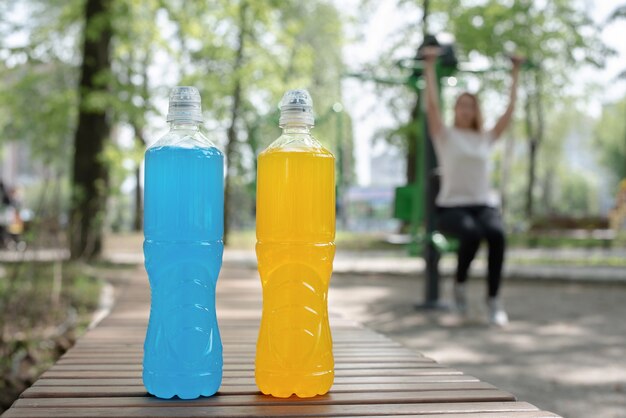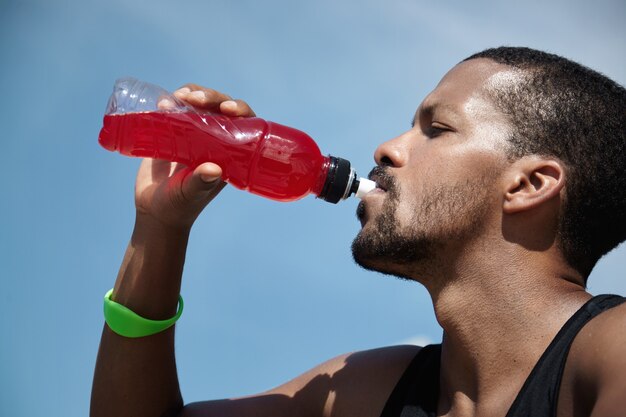Electrolytes are essential for keeping your body in balance, especially during physical activity. This is where Gatorade often comes into the conversation. But the question remains: Does Gatorade have electrolytes?
As one of the most popular sports drinks globally, Gatorade is marketed as a go-to option for hydration and replenishment. In this article, we’ll dive into the science of electrolytes, explore Gatorade’s ingredients, and discuss whether it’s the right choice for your hydration needs.
What Are Electrolytes?
Electrolytes are minerals in your body that carry an electric charge. Common examples include sodium, potassium, magnesium, and chloride. These minerals play a critical role in various bodily functions. They help regulate nerve and muscle function, maintain fluid balance, and control pH levels. When you sweat, you lose electrolytes, which need to be replaced to avoid dehydration and other issues.
Overview of Gatorade
Gatorade was created in 1965 to help athletes recover during intense physical activities. Originally developed for the University of Florida’s football team, the drink has grown into a global phenomenon. Known for its vibrant flavors and electrolyte content, Gatorade has become a staple for athletes and fitness enthusiasts. Variants like Gatorade Zero and Gatorade Endurance Formula cater to a variety of hydration needs.
Does Gatorade Have Electrolytes?
Yes, Gatorade does have electrolytes. This is one of the primary reasons it is so widely used during sports and workouts. Let’s break it down.
Types of Electrolytes in Gatorade
Gatorade contains four main electrolytes:
- Sodium: Helps maintain fluid balance and prevent dehydration.
- Potassium: Supports muscle and nerve function.
- Chloride: Aids in balancing body fluids.
- Magnesium: Assists in muscle recovery, though in smaller amounts.
Each bottle of Gatorade is specifically formulated to replenish the electrolytes lost during exercise, especially through sweat.
Importance of Electrolytes in Physical Activities
Electrolytes are crucial for athletes and anyone engaging in physical activities. During exercise, sweating causes the body to lose both water and essential minerals. If these electrolytes are not replaced, you may experience muscle cramps, fatigue, or dehydration. Gatorade steps in as an easy-to-access solution, restoring what’s lost and keeping you hydrated.
Related to Read: Is Lemon Juice Good for Weight Loss?
How do Electrolytes in Gatorade Work?
The electrolytes in Gatorade are designed to work synergistically to support hydration and muscle performance.

Hydration and Fluid Balance
Sodium and potassium are the stars when it comes to hydration. Sodium helps retain water in the body, ensuring you don’t lose too much fluid during a workout. Potassium balances the effects of sodium and maintains normal cellular function.
Muscle Function and Recovery
Electrolytes also play a key role in muscle health. Sodium and potassium work together to prevent cramping, while magnesium aids in muscle relaxation. This balance is vital for post-workout recovery, allowing your muscles to repair and grow effectively.
Comparing Electrolyte Levels in Gatorade Variants
Gatorade offers several formulas tailored to different needs:
- Regular Gatorade: The original formula with standard electrolyte levels.
- Gatorade Zero: Contains electrolytes without added sugar, suitable for those watching their calorie intake.
- Gatorade Endurance Formula: Designed for high-endurance athletes, this version has higher electrolyte content.
Each variant serves a specific purpose, catering to varying levels of activity and dietary preferences.
Gatorade Ingredients Breakdown
Understanding Gatorade’s ingredients can help you decide if it aligns with your fitness and hydration goals.
Nutritional Content
A standard 20-ounce bottle of Gatorade contains approximately:
- Sugar: 34 grams, providing quick energy during workouts.
- Sodium: 270 mg, to replenish lost salts.
- Potassium: 75 mg, to support muscle and nerve functions.
- Calories: Around 140, depending on the flavor.
While the sugar content provides immediate energy, it may not be ideal for those avoiding added sugars.
Gatorade Zero
Gatorade Zero is a popular alternative for those seeking hydration without the calories. It contains the same electrolytes as the original formula but uses artificial sweeteners instead of sugar. This makes it a good option for casual exercisers or those managing their sugar intake.
Pros and Cons of Using Gatorade for Electrolytes
While Gatorade is effective, it’s not without drawbacks.

Advantages
- Convenience: Gatorade is easy to carry and consume during workouts.
- Electrolyte Balance: Provides a well-balanced mix of essential minerals.
- Variety: Multiple flavors and formulas suit different preferences and needs.
For athletes, it’s a reliable option for staying hydrated and energized.
Disadvantages
- High Sugar Content: Regular Gatorade contains significant sugar levels, which can be counterproductive for those watching their weight or sugar intake.
- Artificial Sweeteners: Gatorade Zero replaces sugar with sweeteners, which some people prefer to avoid.
Understanding these pros and cons can help you decide if Gatorade fits your lifestyle.
Alternatives to Gatorade
While Gatorade is a popular choice, there are other effective ways to replenish electrolytes. Whether you prefer natural options, other sports drinks, or supplements, you have plenty of choices.
Natural Sources of Electrolytes
Natural sources can be a healthier alternative to store-bought drinks. They provide electrolytes along with additional nutrients:
- Coconut Water: Packed with potassium and magnesium, it’s a natural hydrator with minimal sugar.
- Bananas: An excellent source of potassium, ideal for muscle function and preventing cramps.
- Spinach: Rich in magnesium and potassium, great for recovery meals.
- Watermelon: Hydrating and full of potassium for post-workout refreshment.
- Avocados: High in potassium and healthy fats for sustained energy.
Natural options are free from artificial additives and can be incorporated into your diet easily.
Other Sports Drinks
Many sports drink brands offer alternatives to Gatorade, each with unique formulations:
- Nuun: Provides a blend of electrolytes in tablet form with fewer calories.
- Ultima Replenisher: Offers a sugar-free and zero-calorie electrolyte mix with natural flavors.
- Powerade: Similar to Gatorade but with varying levels of electrolytes and sugar.
- BodyArmor: Includes coconut water and additional vitamins.
These options cater to different dietary needs and preferences, from low-calorie to nutrient-dense formulas.
Electrolyte Tablets and Powders
Electrolyte supplements are another convenient alternative. They are portable and allow you to customize your hydration:
- Advantages: Easy to carry, customizable concentration, and usually free from excessive sugar.
- Disadvantages: Some may contain artificial sweeteners or flavors.
Popular brands like Liquid I.V., Pedialyte Sport, and Hydralyte offer effective solutions for quick hydration and recovery.
Who Should Drink Gatorade?
Not everyone needs Gatorade to meet their hydration needs. Knowing who benefits the most can help you decide if it’s the right choice.
Athletes and Fitness Enthusiasts
Gatorade is ideal for individuals who engage in high-intensity or prolonged activities:
- Endurance Athletes: Long-distance runners and cyclists benefit from the added electrolytes and quick energy.
- Team Sports Players: Sports like soccer or basketball often cause significant electrolyte loss through sweat.
- High-Temperature Activities: Outdoor workouts in hot climates increase fluid and electrolyte loss.
For these groups, Gatorade is a practical way to maintain performance and avoid dehydration.
General Recommendations
While Gatorade works well for athletes, it may not be suitable for everyone:
- Casual Exercisers: Water may suffice for short, light workouts.
- Those Watching Sugar Intake: The high sugar content in some Gatorade formulas may not align with their dietary goals.
- Children: Use with caution, as the sugar content may be excessive for young individuals.
It’s essential to weigh the benefits and drawbacks based on individual needs and activity levels.
FAQs
How Many Electrolytes Are in Gatorade?
A standard 20-ounce bottle of Gatorade contains:
- Sodium: 270 mg
- Potassium: 75 mg
- Magnesium and Chloride: Present in smaller amounts, depending on the variant.
These levels are designed to replace electrolytes lost during moderate to intense exercise.
Is Gatorade Better Than Water for Hydration?
It depends on your activity level:
- Water: Best for everyday hydration or light exercise.
- Gatorade: Superior for activities lasting over an hour or those causing heavy sweating due to its electrolyte content.
For intense workouts, Gatorade helps replenish both fluids and electrolytes more effectively than water.
Are There Risks to Drinking Gatorade Daily?
Yes, if consumed excessively:
- High Sugar Intake: Regular Gatorade has significant sugar content, which can contribute to weight gain or blood sugar issues.
- Artificial Sweeteners: Gatorade Zero uses artificial sweeteners, which some people prefer to avoid.
- Dental Health: The sugar and acidity in Gatorade may impact teeth if consumed frequently.
Moderation is key to enjoying the benefits without the downsides.
Conclusion
Gatorade undeniably contains electrolytes, making it a valuable option for hydration and recovery. Its combination of sodium, potassium, and other essential minerals helps athletes and active individuals replenish what they lose during exercise. However, it’s important to choose the right variant based on your needs and dietary goals. Whether you opt for the original formula or Gatorade Zero, staying hydrated is key to peak performance and overall health.


